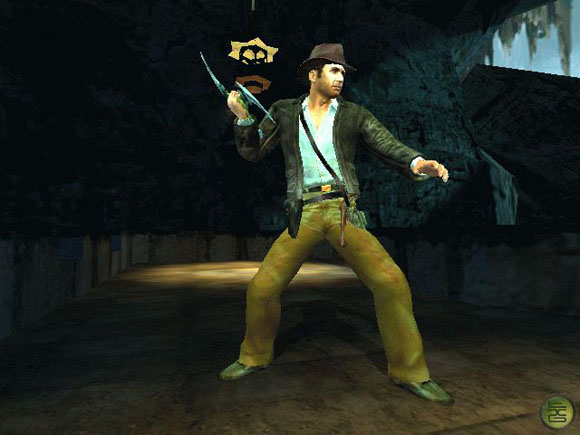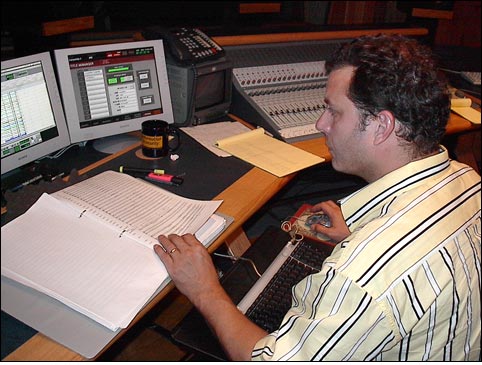
Cris from plasq writes us with a link to a fascinating interview featuring Clint Bajakian, Senior Music Supervisor for Sony Computer Entertainment of America. Winner of 2003 Game Audio Network Guild awards for Best Interactive Score and Music of the Year
, Clint has been doing audio in the game industry for over 13 years. (Ed: Apple did a great profile of Clint, too. -PK)
Clint covers a brief history of game audio in the interview, beginning with the built-in PC speaker all the way through to current 5.1 desktop surround systems. (read more)
Today, CD quality audio in surround formats is fast becoming the norm in both the PC platform and console segments. More importantly here is that the consoles now do realtime mixing and processing, wheras in the ‘old days’ we were dealing with MIDI files being played back by 2-Op FM synthesizers or the slightly more advanced wavetable synths of Creative fame. As game audio became slightly more advanced we had the opportunity to stream audio direct from the CD or hard-disk, yet still nearly everything was pre-rendered and streamed directly with no post-processing whatsoever.

In recent years, the production of game audio has become more specialized and segmented. What used to be a one-man-gig has now split into a variety of different audio specialties: a separate sound designer, composer, engineer, mixer, conductor, voiceover specialist, etc. Field recording is becoming far more predominant in todays games as well. Of course what is unique to game audio as opposed to audio in films and television is that the mixing of game audio, while similar in effect to movies, happens in real-time, in-game. There is, in effect, no ‘final mix’ until someone actually plays the game. Each stream of dialog, effects and music is brought in and out independently by the game’s audio engine.
Bajakian contends, however, that in order to take game audio to the next level of being on-par-with and even surpassing ‘Hollywood quality sound’ is the tools and limited resources in the games and platforms themselves. He encourages developers to build tools that minimize the repetetive, manual tasks that game audio producers deal with in today’s market. He goes on to talk about the types of tools he envisions to improve the communication and processes used in the creation of today’s game audio production infrastructure, stating that providing tools to control the in-game mix in an offline setting is the big challenge. Given the vast amount of audio files in a modern console game, asset management becomes absolutely critical to the success of the game. Interestingly enough, the sophistication of the audio file formats themselves have not evolved. Composers actually have more system-level control with General MIDI than they do with a standard audio file, so from that perspective the tools of the sound designer and composer for game audio haven’t evolved as quickly as the consoles themselves.
All in all, it is about a 40-minute session, but well worth the listen for anyone interested in game audio. Thanks, for the tip, Cris!
Ed: Thanks, Brent. I was at this presentation at O’Reilly; Clint was really great and there’s some stuff in there that’s well worth the listen! This is a really big deal for game composers; I shudder at the manual asset management they have to do, and having talked to a couple of the ‘majors’ in the field, this complaint always comes up. Wonder when we’ll see game platforms that really take the composer to heart? -PK